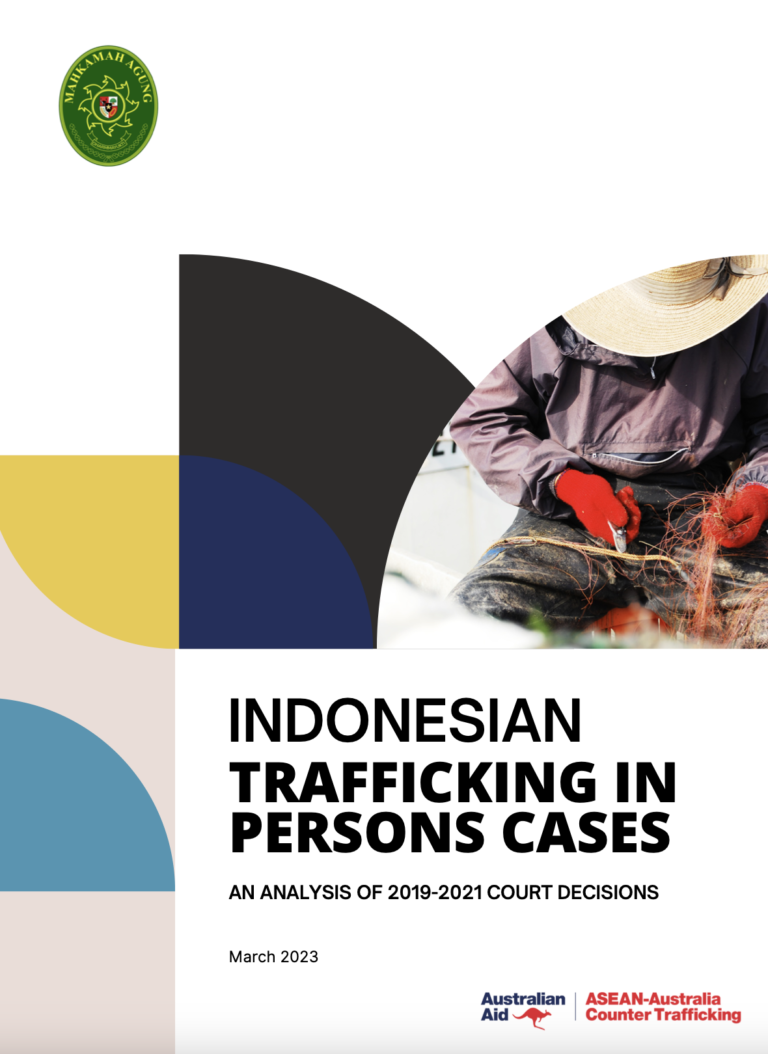The ASEAN-Australia Counter Trafficking is a 10-year partnership funded by the Australian Government (2019-2028) that supports ASEAN Member States to implement and report on their obligations under the ASEAN Convention against Trafficking in Persons, Especially Women and Children (ACTIP).
Implementation of the ACTIP relies on the collection, analysis and sharing of national trafficking in persons data. Publishing this data is valuable as it allows government and civil society to consider how their efforts may be contributing to outcomes.
Without data it is difficult to tell whether government funds allocated to the investigation and prosecution of traffickers are having an impact, or whether the patterns of human trafficking cases are changing across the country/region, and what counter-trafficking efforts might be needed to respond to these emerging types of patterns.
During 2020-2021, ASEAN-ACT has developed with partner countries a set of 8 Victim Sensitive Court Indicators and TIP Data Indicators as a tool to enable collection and publication of information that could support trafficked victims in making an informed decision about participating in legal proceedings.
To support this work, ASEAN-ACT and CSO partners assisted the Supreme Court of Indonesia to review 2019, 2020 and 2021 TIP decisions to formulate a set of Key Findings that would assist the court to:
1. Inform the development and refinement of policies and procedures that contribute to better court experiences and outcomes for TIP victims
2. Provide a source of information to identify any training needs of judges and to evaluate the impact of training overtime. The analysis can also provide training materials to highlight good practice.
3. Establish an evidence base and narrative to:
assist national courts and TIP coordinating agencies with reporting on TIP cases, compare with subsequent decision analyses to be undertaken 2025 and 2028 to show whether the court experience and outcomes for TIP victims have improved or not over the ten years of the ASEAN-ACT partnership.
The analysis provides an overview for the Court of the way TIP cases are prosecuted, the evidence relied upon in the trial, the outcomes in the case and the judicial reasons for the decision. This document is a summary of the analysis and the key findings from the research.
The decision analysis is possible due to the commitment of the Supreme Court over the last decade to publish millions of its decisions on Direktori Putusan.

